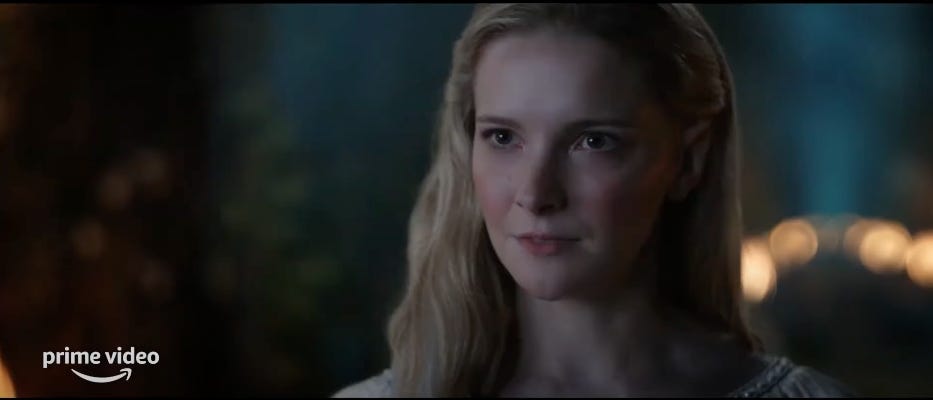Is 'Rings of Power' Woke? Or Just What We Deserve?
Thoughts on Tolkien, pop culture, and the loss of Story.
Well, after watching the first two episodes, I can report that Amazon’s Lord of the Rings prequel The Rings of Power is neither as good as its advertising claims, nor as bad as its critics insist. Like many—perhaps most—other pop culture artifacts of the streaming era, it is mostly a collection of juxtapositions: gorgeously staged, but tepidly written; …



